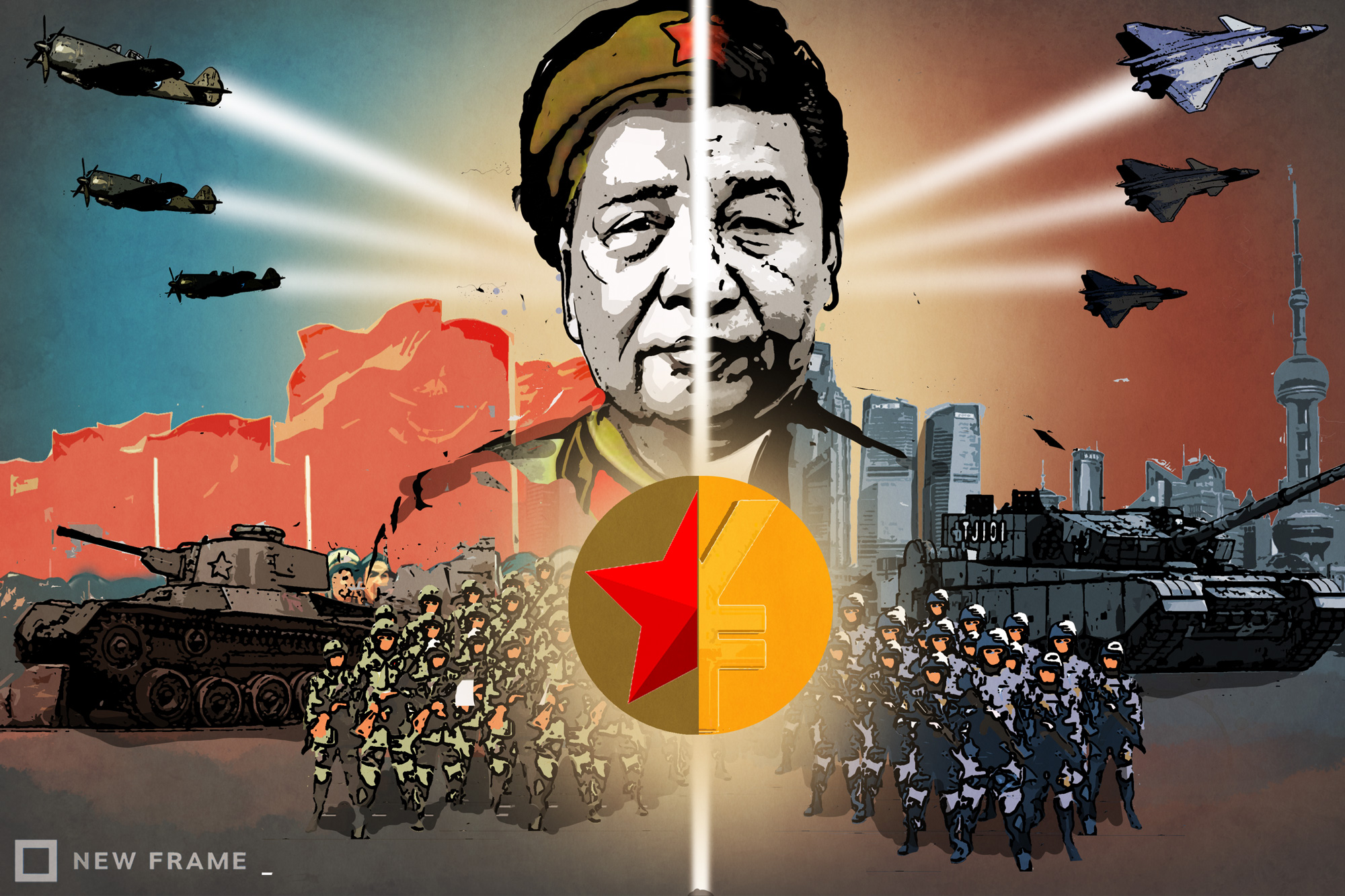Text Messages | Chairman Mao’s toxic dreams
Though communist, China is also a bastion of capitalist commerce embroiled in a trade war with America. Seventy years after heralding the country’s inception, what would Mao Zedong make of it?
Author:
3 October 2019

On 1 October 1949 a new country came into being, proclaimed the People’s Republic of China (PRC) by Mao Zedong. Led by Mao, the communists had defeated the corrupt government of Chiang Kai-Shek, who fled to Formosa, the island now known as Taiwan.
To mark what happened 70 years ago this week, the current Chinese leader, Xi Jinping, stood in the exact spot in Tiananmen Square that Mao had used in 1949. The state of China on those respective days, however, was worlds apart. In 1949, the infant PRC was bankrupt, its gold reserves stolen by Chiang and whisked across the straits to Taiwan. In 2019, China is a superpower of which Xi could boast: “There is no force that can shake the status of this great nation. No force can stop the Chinese people and the Chinese nation forging ahead.”
Xi’s rhetoric is one thing. Quite another is the question whether the PRC has made it thus far despite Mao and communism or because of them. Just 43 years after Mao’s death – on 8 September 1976 – the PRC embodies the most bizarre of compacts between communism and state capitalism on the one hand and party-political correctness and rampant consumerism on the other.
What is certain is that Mao would recognise as little of Beijing and China as would a Qing Dynasty emperor. Mao had the ancient walls of Beijing pulled down to make way for the expansion of the city while Xi has discarded cautious and isolationist diplomacy in favour of commercial and military outreach. Not for nothing are the PRC and the United States embroiled in warfare by other means, principally a trade and tariffs war.
Related article:
Where once there was a Red Star Over China, to use the title of Edgar Snow’s classic book, now there is Adam Smith in Beijing, to use the title of Giovanni Arrighi’s prescient 2007 book. Arrighi writes, “The overall thesis put forward in this book is that the failure of the Project for a New American Century and the success of Chinese economic development, taken jointly, have made the realisation of [Adam] Smith’s vision of a world-market society based on greater equality among the world’s civilisations more likely than it ever was in the two centuries since the publication of The Wealth of Nations.”
Watching over the Tiananmen celebrations of the PRC’s 70th birthday was the ever-present gigantic portrait of Mao that gazes seeing and unseeing, like the huge eyes of Doctor TJ Eckleburg in The Great Gatsby, which look out from a fading advertising billboard. If Eckleburg’s gaze stands for God passing judgement on American society, then so too may Mao’s on a very different China from the one he brought about.
Mao’s revolution
It’s essential to remember what Mao regarded as his two great achievements. In the last summer of his life, he told his wife Jiang Qing and Wang Hongwen, two of the notorious Gang of Four, and his protégé and preferred successor Hua Guofeng, that, “I have accomplished two things in my life. First I fought Chiang Kai-Shek for a few decades and drove him to a few islands … The second matter you all know about. It was to launch the Cultural Revolution.”
In The Death of Mao: The Tangshan Earthquake and the Birth of the New China (2012), Jason Palmer writes, “Estimates for deaths during the Cultural Revolution alone start at around 400 000 and go up to over 10 million. Lowballing the statistics, 2 or 3 million deaths is a reasonable figure.”
The peerless biographer of Stalin, Trotsky and the Russian revolution, Isaac Deutscher, was withering in his contemporaneous assessment of Mao and the Cultural Revolution as well as eerily predictive. Writing on 21 September 1966, he noted:
Related article:
“Mao has been in one person China’s Lenin and Stalin. But at the end of his road he shows more and more similarity to Stalin; and the latest orgy of his personality cult underlines the likeness. It is as if he had outlived himself and is already a relic of the past, an embodiment of China’s backwardness and isolation. When the reaction against these aspects of Maoism comes, his successor or successors, whoever they are, will have to act as its mouthpieces and agents.”
Some 20 years later the great traveller and writer Colin Thubron visited Mao’s mausoleum in Tiananmen Square. He describes his experience in Behind the Wall: A Journey through China (1987):
“The embalmed body lay stiff and shapeless under its mantle, only the head exposed. I did not feel as if I were looking at anything that had been a man … it presented a heaped enigma. And those who passed by on either side were expressionless too, hurried on by plain-clothes security men. The whole uneasy ceremony seemed to have no heart at all, as if this corpse now belonged only to the terribleness of history. China was already moving away from it. I told myself: this man wreaked havoc and change on a quarter of mankind. Yet I passed in and out of that awesome presence as if through a void. He looked altogether smaller than that. It was strange.”


